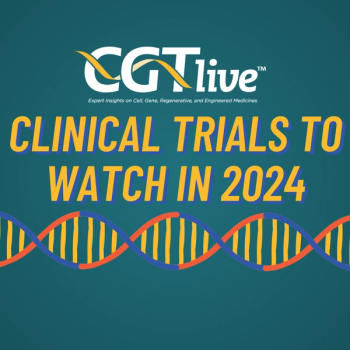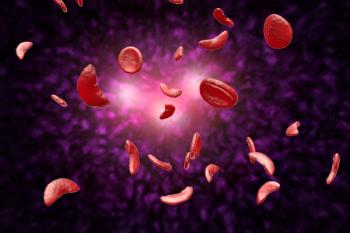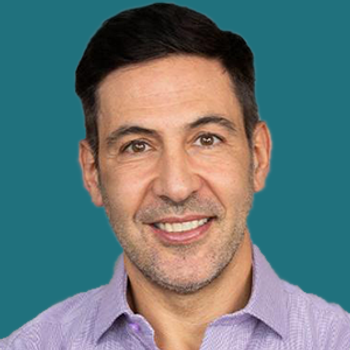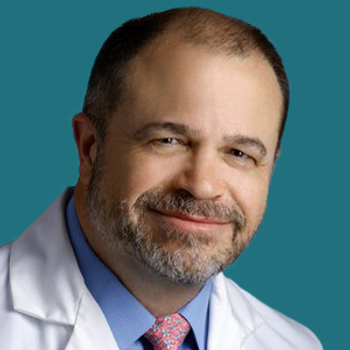
An interim analysis of a phase 1/2 study suggest the REGENXBIO therapy also showed efficacy signals.
Matt Hoffman, Associate Editorial Director for CGTLive™, has covered medical news for MJH Life Sciences, CGTLive’s parent company, since 2017. He also hosts the Medical World News show, Deep Dive. Follow him on Twitter @byMattHoffman or email him at [email protected]

An interim analysis of a phase 1/2 study suggest the REGENXBIO therapy also showed efficacy signals.

A 2-year evaluation of a small cohort of patients with systemic lupus erythematosus, idiopathic inflammatory myositis, and systemic sclerosis showed safety and efficacy which were supportive of additional clinical trials.

Iovance’s tumor infiltrating lymphocyte (TIL) therapy is the first cellular therapy to earn this indication, with the phase 3, confirmatory TILVANCE-301 trial set to verify its clinical benefit.

The ongoing, multistage phase 1/2/3 Cyprus2+ study (NCT04884815) expects to read out initial safety and efficacy data in the first half of 2024.

PepGen’s ongoing multiple ascending dose trial is expected to read out initial data in mid-2024.

These, among many others, are some of the key clinical trials of gene, cell, and regenerative therapies that the CGTLive staff will be following throughout 2024.

The CSL Behring/uniQure gene therapy produced significant reductions in annualized bleeding rates and the number of total bleeds, with a consistent safety profile and no new adverse events.

Among patients with chronic lymphocytic leukemia and small lymphocytic lymphoma, the Bristol Myers Squibb CAR T cell product showed consistent efficacy in patients with a lack of success with BTK inhibitor and venetoclax treatment.

Bluebird bio’s gene therapy, marketed as Zynteglo, showed successful rates of transfusion independence up to 9 years with a reasonable safety profile in data presented at ASH 2023.

The FDA’s Nicole Verdun, MD; and Peter Marks, MD, PhD, offered insight on the recent approvals of exa-cel and lovo-cel, answering questions about the safety of the gene therapies and the continued collection of data on their use.

The decision was supported by efficacy data from 36 patients from the ongoing phase 1/2 HGB-206 trial (NCT02140554) and 2 patients in the phase 3 HGB-210 trial (NCT04293185).

Health Canada has greenlit a protocol amendment for Taysha Gene Therapies’ trial to include patients aged 12 years and older, rather than only adult patients.

uniQure’s AAV9-vector therapy carrying 2 small interfering RNAs targeting GRIK2 was well-tolerated, with a hopeful risk-benefit ratio. A phase 1/2 is set to begin recruitment in late 2023.

The phase 1 VAN-2201 clinical trial (NCT05657301) is assessing the AAV-delivered gene therapy from Chengdu Origen Biotechnology and Vanotech in 5 dose cohorts of 25 total patients.

The CardiAMP autologous cell therapy is being assessed for ischemic heart failure, with a new phase 3 trial that includes modified eligibility requirements and end points.

Eli Lilly’s small interfering RNA therapy showed significant serum reductions with a single dose while remaining well-tolerated. A larger phase 2 study is currently ongoing.

The therapy’s PDUFA date is scheduled for December 8, 2023, and an Advisory Committee is set to meet on October 31, 2023, to discuss the treatment’s potential approval for sickle cell disease.

In a small sample of patients, the CRISPR–Cas9–edited CD34+ hematopoietic stem- and progenitor-cell therapy showed expected safety while inducing red cell fetal hemoglobin.

In a small study, administration of the Généthon therapy encoding UGT1A1 resulted in no serious adverse events. It is also being evaluated in a larger pivotal trial.

XyloCor Therapeutics’ encoberminogene rezmadenovec (XC001) has shown positive data among the 2 highest doses assessed, with the 1×10^11 viral particles dose selected for continued study.

TCR2 Therapeutics’ T cell therapy gavocabtagene autoleucel showed encouraging antitumor activity in the phase 1 portion of an ongoing trial, with an identified recommended dose for the next phase.

The phase 1/2 trial features 3 phases, with new sites expected to open in the coming months. VX-264 uses the same stem cell-derived islets used in the VX-880 program in type 1 diabetes.

The data suggest that for patients with SMA with 2 and 3 copies of the SMN2 gene, the treatment is safe and effective, indicating the success of earlier, presymptomatic treatment.

Additionally, promising efficacy signals were reported�—namely response rates and disease control rates—in the phase 1 clinical trial (NCT04429087) data that were presented at the 2023 ASCO Annual Meeting.

The investigational gene therapy, also known as SRP-9001, was recently backed by the agency’s advisory committee in a tight decision. Its new deadline for review is June 22, 2023.

M. Peter Marinkovich, MD, and Alfonso L. Sabater, MD, PhD, offered their respective perspectives on the recent FDA approval of the topical and redosable gene therapy for DEB.

The Krystal Biotech treatment, marketed as Vyjuveck, is now the first topical gene therapy for patients with DEB—marking a milestone in the paradigm of care.

Catch up on the latest news, breakthroughs, and announcements from biotechnology companies making advancements in cell and gene therapies.

The single-administration allogeneic cell therapy has shown positive safety—and signs of efficacy—in preliminary data from the first 2 patients dosed with the Neurona Therapeutics’ product.

The CAR-T therapy reduced disease progression risk by 74%, according to a data leak reported by STAT News. The data are expected to be presented on May 11 at the 2023 European Hematology Association Congress.